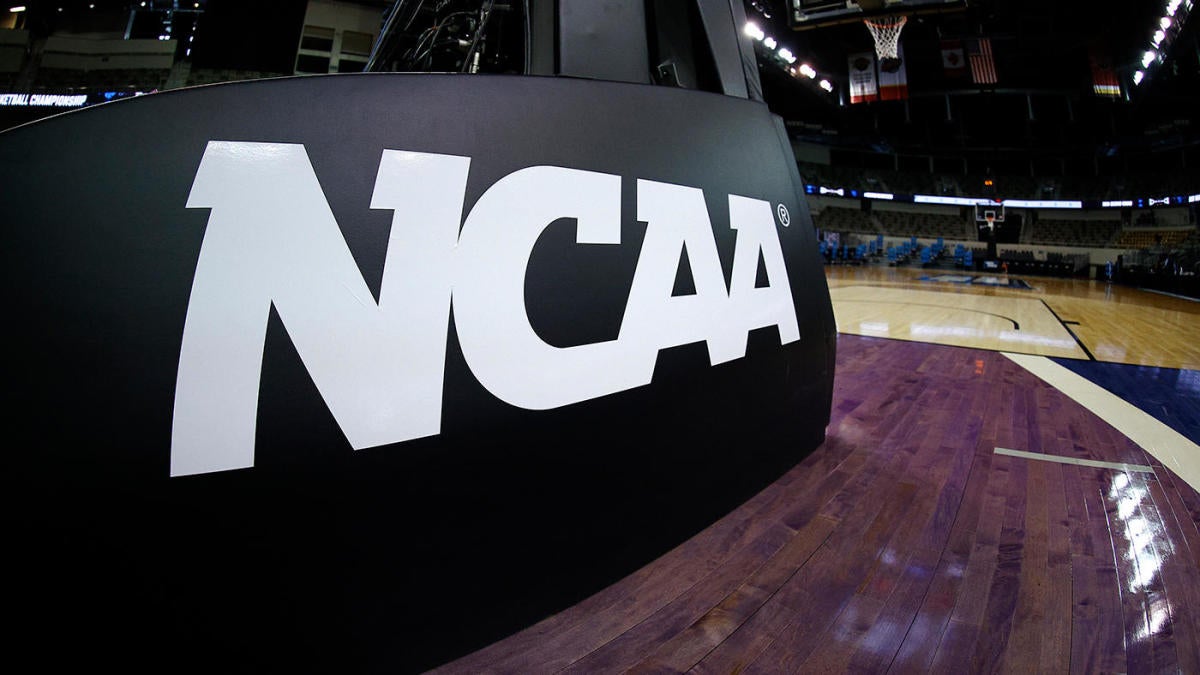
Legal concerns have impeded NCAA's effort to enact name, image and likeness legislation by July 1
The NCAA is battling on all fronts as states' impending NIL laws are set to shake up college sports
The NCAA is battling on all fronts as states' impending NIL laws are set to shake up college sports
By Dennis DoddWhat have been described as significant legal issues have arisen in the NCAA's effort to implement name, image and likeness legislation, sources tell CBS Sports. While some of them aren't exactly new, looming deadlines have made the process going forward "clear as mud," according to one source.
After a regularly-scheduled NCAA Council meeting Wednesday, it became more apparent the NCAA won't be protected on implementing NIL rules unless it gets help from Congress in the form of federal legislation.
"It is the only pathway forward," said a source familiar with the process who did not want to be identified because of the sensitive nature of the situation.
Unless and until the NCAA gets that help, the association could be exposed legally on several fronts.
- Appointing a third-party administrator: Since December 2020, the NCAA has been poised to name an outside company that would oversee NIL contracts and agreements, possibly setting market values for such deals. The administrator would potentially collect data from those deals, some of it private and sensitive in nature. The naming of that administrator has been put off several times. There is uncertainty whether the NCAA, as a national organization, could legally implement an administrator, according to sources. Earlier this month, finalist INFLCR removed itself from consideration citing possible conflicts of interest.
- Class-action lawsuits: Former athletes who weren't allowed NIL rights during their time in college could choose to sue the NCAA.
- Capping compensation: Certain language in NCAA NIL legislation could put caps on compensation, which could open the NCAA up to an anti-trust challenge.
- NCAA v. Alston: The implication of the case, currently in front of the U.S. Supreme Court on appeal, sort of hovers over the entire process. While the Court's decision doesn't directly impact NIL, it does potentially impact the NCAA's ability and leverage in implementing NIL. The NCAA challenged a lower-court ruling that athletes could receive unlimited benefits tethered to education. Complicating matters, that decision is expected to come down in late June, days before July 1 when five states' NIL laws will take effect.
But there remains a general quandary on how the NCAA moves forward without exposing itself legally on any of those matters. It's fair to say there remains frustration among the membership that the association had years to develop a plan knowing this date was coming.
"If we do pass something, do we open ourselves up for a bunch of litigation?" one administrator asked rhetorically. "It's all these disparate views and disparate attempts at NIL with states with different types of bills where the NCAA rules come into play."
One person familiar with the legislative talks stressed the NCAA Council is aware this could be one of the biggest pieces of legislation in NCAA history. NIL would allow athletes to be compensated for autographs, commercials, social media, etc., going against the foundation the NCAA's existence -- the so-called "collegiate model."
The NCAA Council is a 40-person group responsible for day-to-day decision-making in Division I. Any NIL recommendation from the group would have to be approved by the NCAA Board of Governors.
The NCAA continues to look toward Washington, D.C. where Sen. Maria Cantwell (D-WA), chairwoman of the Commerce Committee, continues to work on a federal bill that would unite several pieces of legislation submitted from both sides of the aisle. Congress breaks for the summer on July 30, returning in September.
After Wednesday's NCAA Council meeting, uncertainty continued to be expressed whether Congress would be able to act by July 1.
"The school of thought that is most common [is it's] very unlikely to happen before July 1 but it does have a little bit of a pulse," said a source.
CBS Sports reported Monday it was looking less likely the NCAA would have legislation to regulate its members by July 1. Will the NCAA pass NIL legislation as a show of good faith to membership and athletes? In that case, a blanket waiver could come from the NCAA protecting the schools and athletes in those five states from rules violations.
The NCAA Council did move up an effective date for possible legislation from Aug. 1 to July 1, or sooner, if situations dictate.
There remains a collective sense of progress that the NCAA Council may recommend NIL legislation during its next meeting June 22-23 meeting, sources tell CBS Sports.
The NCAA announced in a press release Wednesday that the council is "expected" will act on NIL in that meeting "if it is feasible". The council could meet anytime sooner than the third week of June if compelled.
"The reality is doing nothing has a huge impact," a legislative source said. "Doing something has a huge impact."
Growing buzz around NIL continues. Sen. Marco Rubio (R-FL) was quoted in a tweet this week saying the NCAA was in a "mess" because states had forced the NCAA's hand. Rubio introduced a federal NIL bill last year.
Meanwhile, college athletes are ready to "hit send" finalizing NIL deals with companies at midnight on July 1, according to an NIL industry source. Some of those deals include photoshoots and commercials for athletes who have already signed non-disclosure agreements with companies.
